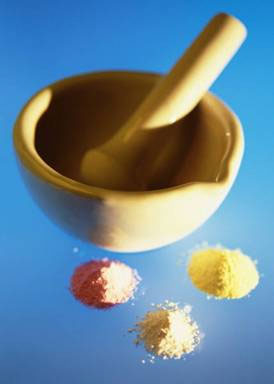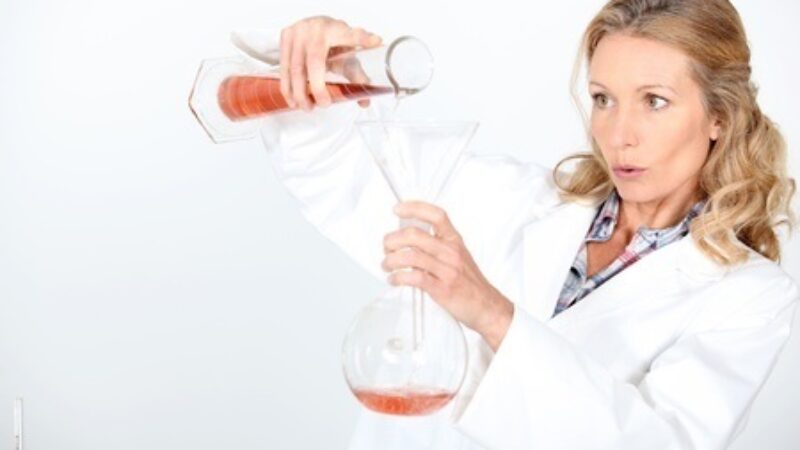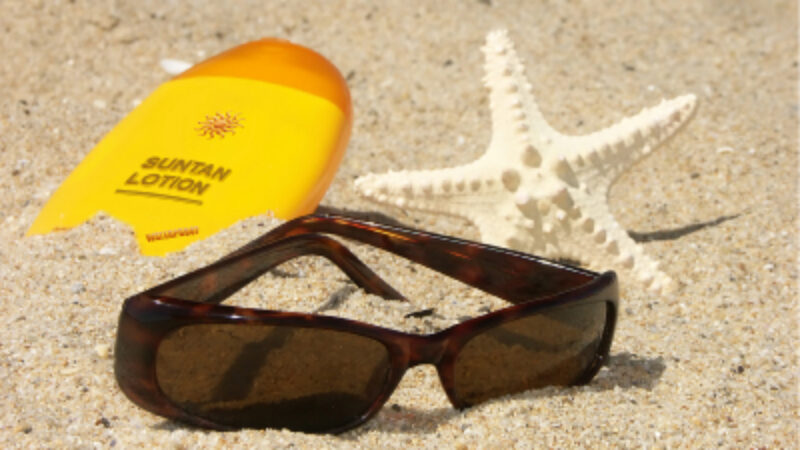Propylene glycol is one of those ingredients that has been a bit unfairly judged. And while it’s not uncommon for skin care ingredients to be misunderstood, propylene glycol really has had a bad run. If you were to do a Google search for it, you’ll find that it has many enemies, especially in the natural world. Like other skin care ingredients, much of the concern surrounding it is based upon misinformation, as opposed to facts.
Today, I’ll explain what propylene glycol is. We’ll explore some of its applications, both within and outside the beauty industry. I’ll also share some details regarding why it is included within skin care products.
What is Propylene Glycol?
Propylene glycol is an organic, synthetic compound that absorbs water. It is used by the chemical, food and pharmaceutical industries in makeup, shampoos, cleansing creams, and other cosmetics, but the ingredient is used in a wide range of pharmaceuticals, foods, deodorants, saline solutions, and even antifreeze. It is used to absorb extra water and maintain moisture in certain medicines, cosmetics, or food products and it is also a solvent for food colors and flavors, and in the paint and plastics industries. Other names include 1,2-dihydroxypropane, 1,2-propanediol, methyl glycol, and trimethyl glycol. The Food and Drug Administration (FDA) has classified propylene glycol as an additive that is “generally recognized as safe” – GRAS- for use in food. It is used in cosmetics and beauty products for 2 primary reasons. First, it has the traits of a humectant; it is able to absorb and help the skin retain moisture. Second, it helps active ingredients penetrate the skin. In doing so, products that contain the ingredient often provide higher levels of efficacy because they can reach deeper to deliver their beneficial actions.
Its application in antifreeze and similar products is what encourages the fear regarding the use of propylene glycol. Because the ingredient is used in antifreeze, individuals jump to the conclusion that its effect within the body and upon the skin can only be damaging. However, it’s worth noting that such applications require a high concentration; far higher than that used in any skin care product. What’s more, propylene glycol has been used in various medicines for several years without adverse effect.
Propylene glycol breaks down in the body in about 48 hours. And while prolonged exposure is normally non-irritating, studies have shown that if you have repeated eye, skin, nasal, or oral exposures to it for a short time, you may develop some irritation, especially if you are sensitive to the ingredient.
Should You Avoid Propylene Glycol?
Unless you are sensitive to propylene glycol, its inclusion within a cosmetic formulation shouldn’t necessarily be cause for concern. When it is included, its concentration is low enough to be completely safe while still aiding in other active ingredients’ penetration of the skin.
If your skin does exhibity sensitivity, then select alternatives. You may want to consider propanediol, an ingredient that has been gaining popularity in recent years. You’ll find it in our Apothekari Bespoke Vitamin C serum where it performs the important job of making sure you receive maximum results from its range of highly effective antioxidants.




Is propylene glycol the same as glycerine?
For Pat:
Although propylene glycol and glycerin are both used in the cosmetic industry as a humectant to attract moisture to the skin, they are not the same ingredient.
Best, Sharmani
polypropylene glycol is very useful for skin care cosmetic..its very useful..you describe very nice information about this,,thanx for this sharing.
What concentration of propylene glycol is safe for the skin?
For Jaya:
Thank you for your question. The FDA has categorized propylene glycol as “GRAS” (Generally Recognized as Safe). In concentrations used in skin care products, propylene glycol has been deemed safe for use when formulated to be non-irritating, according to the Cosmetic Ingredient Review Board.
Since we touched on this subject in 2008, the Review Board has assessed more recent data and have concluded that it is still safe for use in cosmetic products. However, for sensitive individuals even small concentrations are potentially irritating. It’s difficult to quantify exactly what concentration as individuals differ so much and what can be tolerated by one person may be problematic for another.
Best, Sharmani
What it is ingredience can repleace propylene glycol for sensitive skin care products.
For Roha,
Thanks for your question. You may notice that instead of propylene glycol, many cosmetic and skincare companies are now favoring propanediol. Generally well-tolerated, propanediol has a few advantages, including having a low potential for skin irritation and coming from a renewable resource (corn versus petroleum). EWG also gives it an overall low hazard rating of 1.
Best, Sharmani
Can i mix propylene glycol cream ( emolene) with vit E extract (evion) aloe vera gel and rose water for my face?
For Mimi,
As we are a retail store and not a manufacturer, it is difficult for us to comment regarding the suitability of mixing various treatments for facial use. While it is possible that the products mixed together may work well, there is also the possibility that they may be incompatible or harmful. If this is something that you are interested in pursuing, it would be wise to seek advice from someone experienced with a background in chemistry. We are sorry that we can’t be of any further help.
Best, Sharmani
Propylene glycol is good for acne and pimples or no?
For Vera:
Propylene glycol is an ingredient that has been used safely in small amounts in cosmetic formulations for many years. It tends to be well-tolerated, but some individuals may be sensitive to this ingredient with various outcomes, such as irritation. Its connection to acne isn’t well documented. If you are concerned about propylene glycol causing acne, look for products that do not contain this ingredient. You’ll be pleased to hear that many cosmetic cosmetics are opting for propanediol, an ingredient that delivers many similar benefits to propylene glycol, without the side effects. Read more about it here in our blog.
Best, Sharmani
Are propylene glycol and glycolic acid similar?
Hi Bailey,
Thank you for your question. Propylene glycol and glycolic acid are unrelated ingredients and used for different purposes in skin care.
Could propylene glycol be derived from plants?
Hello Kiko,
Thank you for your question. We tend to see propylene glycol produced in a lab but it is possible to be derived from plants.
Best,
Sharmani